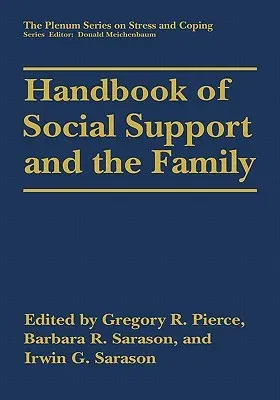Handbook of Social Support and the Family (1996)Hardcover - 1996, 30 June 1996

Qty
1
Turbo
Ships in 2 - 3 days
In Stock
Free Delivery
Cash on Delivery
15 Days
Free Returns
Secure Checkout

Part of Series
Springer Stress and Coping
Part of Series
Plenum Series on Stress & Coping
Part of Series
Plenum Series on Stress and Coping
Part of Series
Springer Series on Stress and Coping
Print Length
573 pages
Language
English
Publisher
Springer
Date Published
30 Jun 1996
ISBN-10
0306452324
ISBN-13
9780306452321
Description
Product Details
Book Edition:
1996
Book Format:
Hardcover
Country of Origin:
US
Date Published:
30 June 1996
Dimensions:
26.01 x
18.54 x
3.76 cm
Genre:
Family
ISBN-10:
0306452324
ISBN-13:
9780306452321
Language:
English
Location:
New York, NY
Pages:
573
Publisher:
Series:
Weight:
1419.74 gm